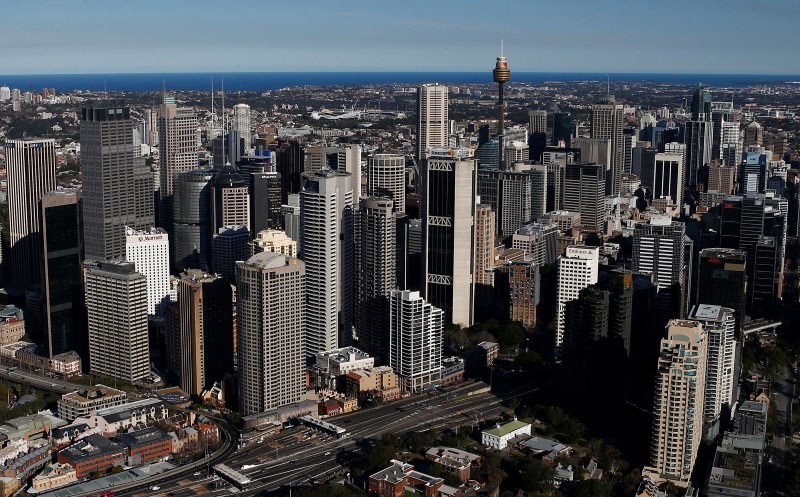* Q3 business investment -4 pct q/q, vs forecasts -2.5 pct
* Spending plans for 2016/17 disappoint at A$106.9 bln
* Risk GDP may have shrunk in Q3 for first time since 2011
* Will test RBA optimism on growth, reluctance to cut rates (Adds economist reaction, home price data)
By Wayne Cole
SYDNEY, Dec 1 (Reuters) - Sharp cutbacks in Australian business investment has opened the real possibility the economy shrank last quarter for the first time in almost six years, a blow to the conservative government of Malcolm Turnbull which has staked its future on growth.
Thursday's figures from the Australian Bureau of Statistics' showed investment fell 4 percent in the third quarter, when analysts had looked for a drop of only 2.5 percent.
The investment strike among businesses is hardly confined to Australia. Firms across the globe are reluctant to invest despite super-low interest rates, often blaming unspecified political or economic uncertainty.
The broad-based weakness at home will disappoint to the Reserve Bank of Australia (RBA) which has pinned much on a revival in animal spirits outside of the hard-hit mining sector.
Data on gross domestic product (GDP) loom on Dec. 7 and were already looking soggy after a poor quarter for retail sales. A contraction would be highly unusual - it has only happened three times in the past 25 years. The last negative quarter was back in 2011 and that was caused by massive flooding in Queensland.
It would also be a serious embarrassment to Turnbull's Liberal National government which retained power just a few months ago on a promise to deliver jobs and growth.
"There is a high risk that we will see a negative GDP outcome," warned Shane Oliver, chief economist at AMP. "I think the Reserve Bank might end up having to cut rates again."
The RBA has been on hold since cutting rates to an all-time low of 1.5 percent back in August, partly because it fears fuelling a debt-driven bubble in home prices.
Figures from property consultant CoreLogic out on Thursday showed prices across Australia's major cities rose 9.3 percent in the year to November, up from 7.5 percent the month before.
Sydney boasted annual growth of 13.1 percent and Melbourne 11.3 percent, putting the nation's two largest cities into double-figure territory. futures market 0#YIB: still suggests investors see almost no chance of a rate cut at the RBA's next policy meeting on Dec. 6, the last of the year. It also implies little chance of an easing for some months to come, though any thought of a hike has also been priced out.
That steady outlook limited the damage to the local dollar which was down only slightly at $0.7380 AUD=D4 .
The RBA has argued that the long retreat in mining investment was mostly over and the renewed strength of commodity prices in recent months would bolster sentiment.
Yet there was little sign of a major turnaround in the latest survey of business spending for 2016/17 which came in well under expectations at A$106.9 billion. Analysts had looked for something around A$111 billion.
"The transition towards non-mining investment is taking place at a snail's pace," said Paul Dales, chief economist at Capital Economics. "The RBA must be getting a little concerned the economy isn't quite as strong as it thought."
